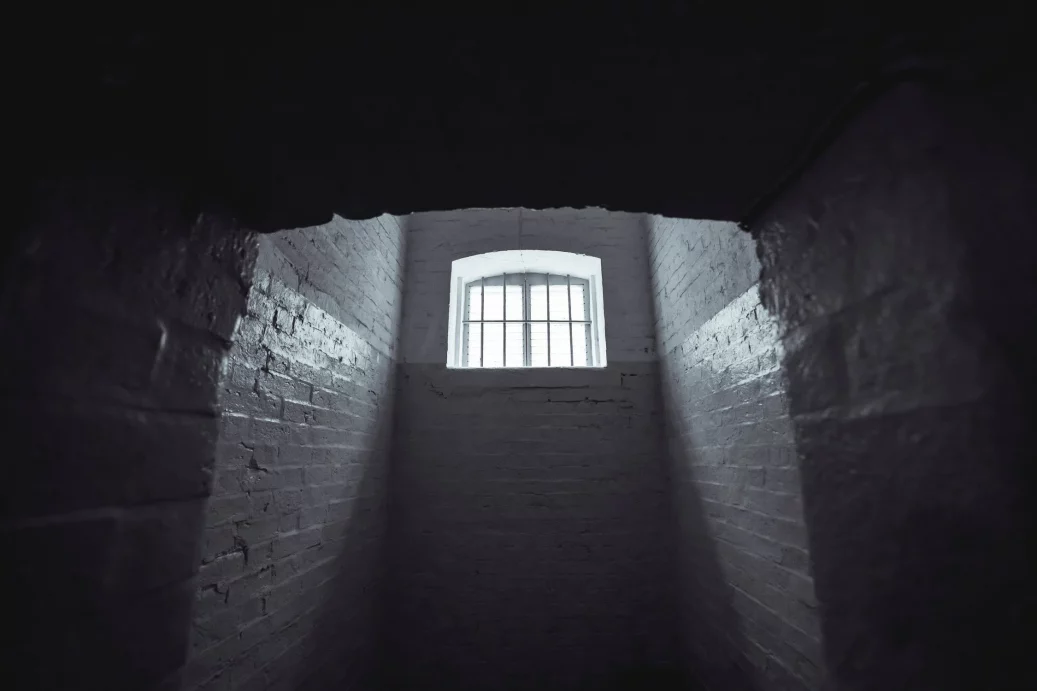What do you do when you imagine your future and see nothing but darkness? This is a problem that more and more people face in our age of fear and anxiety, especially among young men. Young men seem to be less motivated, less joyful, and less hopeful about the future than ever before.
There may be several explanations for this, each of which requires a different remedy. A person may only project pain for himself and others because he’s naturally pessimistic. In that case, the solution may be psychological where the person simply needs a change in mindset. Think “glass half-full” rather than “glass half-empty” kinds of shifts in thinking.
The problem may also be biological, where chemical disorders or conditions affect one’s state of mind. In that case, the solution may be medical where the person needs to see a trusted medical professional and be prescribed some medication.
But there’s another potential explanation that requires an altogether different remedy. This is the one that many people don’t tend to think of, and if they do, they don’t know how to treat it. We can call this the spiritual problem. The issue here isn’t about pessimism or clinical depression, but about despair.
Despair is always accompanied by doubt. More specifically, it’s connected to doubts about whether God is really for you and not against you. Despair is what hits you when you doubt whether God has forgiven you, or whether God really cares about you, or whether God can truly deliver you from your suffering. How do we treat this joy-sucking malady of the soul?
In his classic allegory The Pilgrim’s Progress, John Bunyan provides us with an answer to this problem. The story traces the journey of Christian, a man who faces many trials and temptations on his way from the City of Destruction to the Celestial City, as he seeks to find rest for his soul and everlasting joy in the presence of the King.
In one scene, Christian and his friend Hopeful are imprisoned by “Giant Despair” within “Doubting Castle”. There, the two friends suffer one of the worst trials of their pilgrimage to the Celestial City. They are beaten, starved, and left to die in a dark and gloomy cell.
Bunyan’s point is that there is nothing worse for the Christian than falling into a state of despair, because despair extinguishes our hope and paralyzes us with fear. It keeps us from seeing the light of God’s countenance and makes us believe the lie that God is powerless to rescue us. That is why Giant Despair must imprison the two pilgrims within Doubting Castle, because despair only grows out of the poisoned soil of our doubts.
How do the two friends escape the clutches of this evil giant and the filth of their hopeless jail? The answer to this question provides us with the way out of our own prisons of fear and doubt. Listen to what Christian says:
“What a fool am I, to lie in a stinking dungeon, when I may as well walk at liberty! I have a key in my bosom called Promise, that will, I am persuaded, open any lock in Doubting Castle.”
It turns out that Christian had the key that led out of Doubting Castle all along. It was a key called Promise, and it unlocked every single room within the Castle until the two friends were free at last.
Here’s the lesson: the only way out of fear and despair is to cling to God’s promises with faith. Despair is absent when faith is present, and faith is present when God’s promises are central.
How do we cling to God’s promises? By remembering them, praying them, and believing them. We need to remember God’s promises, pray God’s promises, and believe God’s promises. Bunyan shows us that this was once a staple of the Christian diet, a spiritual discipline that has sadly been lost in our era of pragmatic Christianity. But if this pandemic has taught us anything, it’s that we don’t need more pragmatic solutions. We need more faith in the promises of God.
And so, as we look forward to a new year, let us remember that we have a key called Promise, a key that is so powerful and trustworthy that despair will never imprison us within our doubts. Here are a few of these keys for you to remember, pray, and believe:
“You keep him in perfect peace whose mind is stayed on you, because he trusts in you.” (Isaiah 26:3)
“In peace I will both lie down and sleep; for you alone, O LORD, make me dwell in safety.” (Psalm 4:8)
“The LORD is on my side; I will not fear. What can man do to me?” (Psalm 118:6)
“If God is for us, who can be against us? He who did not spare his own Son but gave him up for us all, how will he not also with him graciously give us all things? (Romans 8:31-32)
“We are afflicted in every way, but not crushed; perplexed, but not driven to despair; persecuted, but not forsaken; struck down, but not destroyed” (2 Corinthians 4:8)
“Let the children come to me, and do not hinder them, for to such belongs the kingdom of God.” (Luke 18:16)
May these promises, and others within God’s Word, sustain and strengthen us through the upcoming year, so that we may continue to do all things, and endure all things, to the glory of God alone.
About


